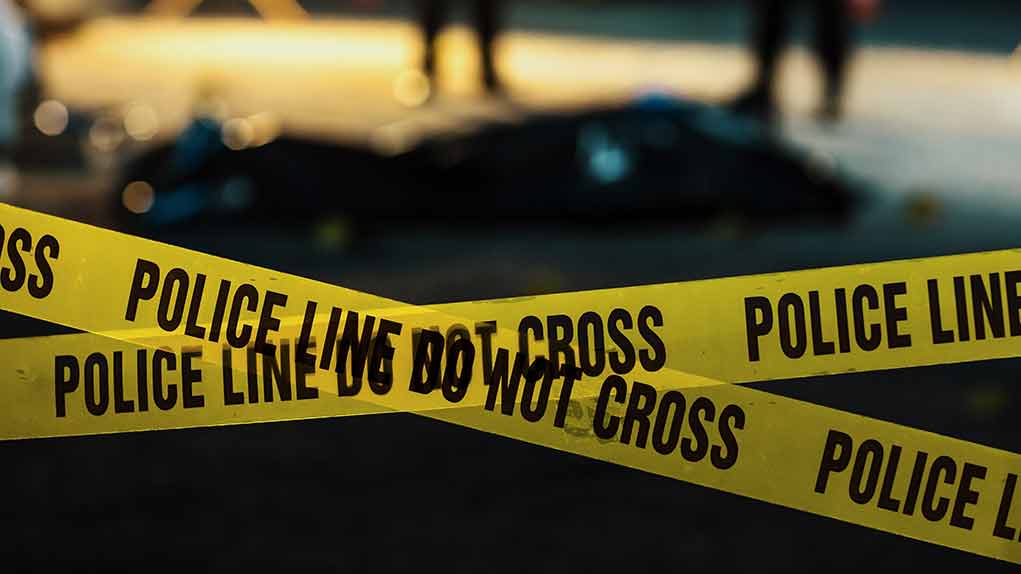
Suspected Palm Springs fertility clinic bombing accomplice Daniel Park has died mysteriously in federal custody, cutting short what would have been a high-profile terrorism case involving a radical anti-natalist ideology.
Key Takeaways
- Daniel Park, charged with supplying explosive chemicals for the Palm Springs fertility clinic bombing, was found unresponsive in federal detention and pronounced dead at a hospital.
- Park allegedly shipped 180 pounds of ammonium nitrate to bomber Guy Edward Bartkus, who died in the May 17 explosion, and purchased an additional 90 pounds before the attack.
- The suspects reportedly shared anti-natalist and anti-pro-life views, with Park posting such ideologies online since 2016.
- Park fled to Poland four days after the bombing but was arrested and extradited to the United States where he faced malicious destruction of property charges.
- The explosion, described as possibly the largest bomb scene in Southern California, destroyed the clinic and damaged surrounding buildings, though no embryos were damaged as the facility was closed.
Radical Anti-Life Suspect Dies Under Mysterious Circumstances
Daniel Park, the Washington state man accused of providing explosive materials for the Palm Springs fertility clinic bombing, has died while in federal custody at the Metropolitan Detention Center in Los Angeles. Park, who was awaiting trial for malicious destruction of property charges, was found unresponsive in his cell despite being under the watchful eye of federal authorities. This unexpected development brings a sudden end to what prosecutors believed was a clear-cut case of domestic terrorism motivated by radical anti-family ideology. The timing of Park’s death raises significant questions about security protocols within federal detention facilities.
“MAN CHARGED WITH SUPPLYING CHEMICALS IN CA BOMBING DIES IN JAIL,” reported FOX 13 Seattle Digital Team.
The Bombing Plot and Park’s Role
Federal investigators had built a substantial case against Park, a resident of Kent, Washington, linking him to bomber Guy Edward Bartkus through their communications on obscure online forums. According to authorities, Park shipped an astounding 180 pounds of ammonium nitrate to Bartkus and purchased an additional 90 pounds before the May 17 attack that decimated the Palm Springs fertility clinic. The FBI discovered that Park had been systematically acquiring ammonium nitrate through multiple online purchases between October 2022 and May 2025, clearly indicating long-term planning and coordination with Bartkus.
Investigators uncovered disturbing evidence that both men shared extreme anti-natalist views and opposition to pro-life causes. Park allegedly began posting such radical ideologies online as far back as 2016, suggesting a long-standing commitment to these dangerous beliefs. The attack on a fertility clinic—a place dedicated to helping families bring new life into the world—appears perfectly aligned with the anti-natalist philosophy that views human reproduction as morally wrong. This ideological motivation elevates the bombing from mere property destruction to a politically motivated act of domestic terrorism.
Failed Escape and Final Moments
Just four days after the bombing, Park fled the United States to Poland in a desperate attempt to evade justice. This flight abroad demonstrates consciousness of guilt and suggests Park was fully aware of his role in the attack. His international escape was short-lived, however, as he was eventually arrested and extradited back to the United States. After his return, Park was detained at the Metropolitan Detention Center in Los Angeles, where he would ultimately be found unresponsive in his cell despite being in a secure federal facility.
“Responding employees initiated life-saving measures. Emergency medical services (EMS) were requested while life-saving efforts continued,” stated the Federal Bureau of Prisons.
Despite these efforts, Park was pronounced dead after being transported to a hospital. Authorities have yet to release a cause of death, leaving many questions unanswered about the circumstances surrounding his demise. The timing of his death—while awaiting what would likely have been a high-profile terrorism trial—is certain to fuel speculation about whether there was a security lapse or if other factors were involved. The incident raises serious concerns about the ability of federal detention facilities to monitor high-value detainees charged with terrorist activities.
Aftermath and Implications
The Palm Springs bombing has been described by authorities as potentially the largest bomb scene in Southern California history, underscoring the severity of the attack and the dangers posed by domestic extremism. While the explosion fortunately occurred when the clinic was closed, preventing any immediate casualties, the blast completely destroyed the facility and caused significant damage to surrounding buildings. Investigators have confirmed that no embryos were damaged in the explosion—a small mercy in what could have been an even more devastating attack against innocent life.
With both Park and Bartkus now deceased, many questions about their full motives and potential connections to broader extremist networks may never be fully answered. What remains clear is that this case represents a disturbing example of how radical anti-family ideologies can motivate acts of domestic terrorism against institutions that support family formation and new life. The targeting of a fertility clinic—a place dedicated to helping couples overcome challenges to having children—reveals the true face of extremist anti-natalist ideology and its fundamental opposition to the most basic human values.




